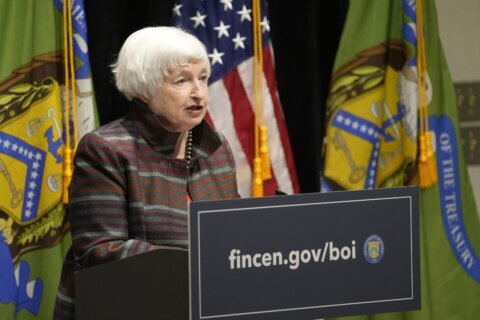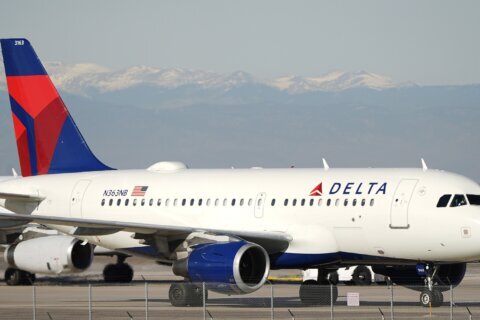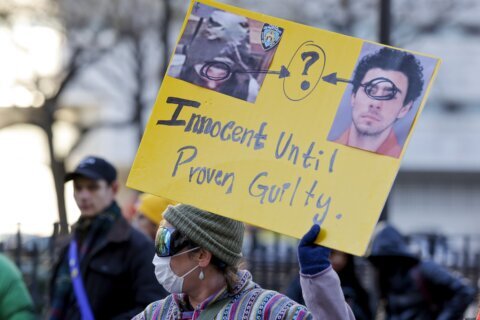Last weekend, Starbucks got a report that a New York store had been spray-painted with pro-Palestinian graffiti. A few hours later, at a store eight blocks away, a customer berated employees, accusing the brand of being anti-Israel.
It’s been a tough few weeks for the world’s largest coffee company. At a time when it hoped to be spreading holiday cheer and peppermint mochas, it’s juggling boycotts over the war in the Middle East and a unionization effort at home.
Gabrielle Blake, a student at Kent State University in Ohio, said it’s been tough to get her caffeine fix without stopping at one of the Starbucks stores on campus. But she’s been boycotting the company since October, when it sued Workers United — the union organizing its employees — because the union had posted a pro-Palestinian message on social media.
Starbucks wanted to stop the union from using its name and logo, saying the company had no official stance on the war and the union’s post might confuse customers. But many boycotters, like Blake, thought Starbucks should offer more support to the people of Gaza.
“I understand on a corporate level why they wanted to mitigate that damage, but on the humanity level, it’s horrible,” she said. “I personally try to consume and do things in a way that I’m not disregarding other people’s pain when I’m purchasing something.”
In an open letter to employees Tuesday, Starbucks CEO Laxman Narasimhan decried the vandalism of stores and escalating protests in the U.S. and abroad.
“While I am grateful for so much, I am concerned about the state of the world we live in. There are conflicts in many parts. It has unleashed violence against the innocent, hate and weaponized speech and lies — all of which we condemn,” he wrote. “Our stance is clear. We stand for humanity.”
But Blake said she would rather see Starbucks take measures like calling for a ceasefire or sending aid to the people of Gaza. She also thinks the company should drop its lawsuit.
“Everyone stands for humanity. What does that mean for you?” she said.
Seattle-based Starbucks won’t yet say how its sales have been impacted. The company’s next quarterly sales report won’t come out until February. But there are indications Starbucks is taking a sales hit.
In early December report, J.P. Morgan analyst John Ivankoe lowered his U.S. sales forecast for Starbucks’ fiscal first quarter, saying holiday sales appeared to be slower than promotions in the fall. Starbucks’ share price tumbled on the news. Meanwhile, videos posted on X show protests and empty stores in London, Australia, Dubai and elsewhere.
Starbucks has also been offering more deals than usual to draw customers, like half-price drinks on Thursdays.
In some cases, like the Workers United lawsuit, Starbucks’ issues have been self-inflicted. The company refiled the lawsuit in November to add language saying it respected workers’ right to express their views on the war in the Middle East and other political issues. It also emphasized that the lawsuit was about protecting workers’ safety and Starbucks’ reputation. But the damage was done.
Other issues have cropped up because of misinformation on social media. Posts on X incorrectly accuse the company of directly funding genocide in Gaza, for example. Starbucks has no stores in Israel or Gaza.
It’s a swift reversal of fortune for Starbucks, which reported record sales in its latest quarter that ended Oct. 1. It celebrated the 20th anniversary of the Pumpkin Spice Latte and said growth was accelerating in China.
Even then, though, tensions were simmering. U.S. workers at more than 370 company-owned Starbucks stores have voted to unionize since late 2021, but the company and the union still haven’t agreed to a contract at any of those stores.
On Nov. 16, workers at several hundred U.S. Starbucks stores walked off the job in protest. That hurt sales on what is usually one of the company’s busiest days of the year. This month, the union is asking consumers not to buy Starbucks gift cards.
Starbucks, which opposes the union effort, has also tried to shift the conversation on that issue. Earlier this month, the company announced it was committed to bargaining with its unionized workers and reaching labor agreements next year.
Workers United says it also wants to sit down at the bargaining table, but it remains skeptical.
“We are hopeful that your letter is indeed the beginning of a sincere effort by Starbucks to work together for the benefit of partners and not a publicity move in the face of pressure from partners, Wall Street, shareholders and others,” Workers United President Lynne Fox wrote last week in a letter to Starbucks.
Starbucks shares rose 1.2% to $97.72 per share Tuesday. They have fallen more than 8% since Nov. 16.
Copyright © 2024 The Associated Press. All rights reserved. This material may not be published, broadcast, written or redistributed.







